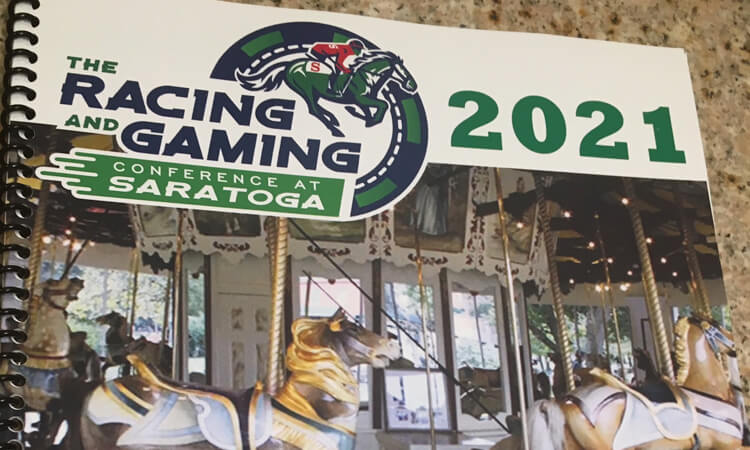Monmouth Park operator Dennis Drazin has gotten used to being a lone pioneer on legal gambling expansion issues.
But on Monday at the The Racing and Gaming Conference in Saratoga Springs, N.Y., Drazin got some backing on the topic of adding fixed odds to the betting menu for horse racing players from New York Thoroughbred Horsemen Association President Joe Appelbaum.
“Typically, horsemen sit on a panel like this and throw up all sorts of reasons why we shouldn’t change and we should stick with parimutuel [wagering],” Appelbaum said during the “Parimutuel Wagering in the New Sports Betting Landscape” panel at the Saratoga Race Course. “But I would say that it’s inevitable, maybe in six months or maybe in six years, there will be a mix of bookmaking and parimutuel wagering in this country, and in just about any jurisdiction. We should keep our eyes open, and we shouldn’t be scared.”
Gov. Phil Murphy recently signed a bill into law making New Jersey the first state to establish regulations for fixed odds betting— enabling consumers to be certain that the odds that are offered on a horse at the time of the wager will be the same odds that are paid out should the customer’s bet win. In parimutuel wagering, the odds can change constantly — including just after the start of the race as last-second wagers are absorbed by the track’s betting system.
But traditional horse racing officials have proven reluctant to go along with a concept that is a given in places like the United Kingdom and Australia but foreign to American bettors. The fear is that fixed odds bets will cannibalize the current parimutuel “takeout model” that diverts 15-20% of the handle, or amount wagered, to the house.
Appelbaum said he agreed with Drazin — who also discussed this topic last week on the Gamble On podcast — that it’s important to understand that win, place, and show handle accounts for only about one-third of the total handle, “and it is the one-third that is not growing.” So-called exotic bets such as exactas, trifectas, and superfectas are not part of the fixed odds model.
ADWs a cautionary tale?
Lessons should be heeded from “mistakes we made a generation ago with ADWs,” Appelbaum, added, referring to advance deposit wagering. Supporters of that innovation promised they would “expand the pool of bettors,” but total horse racing handle in the U.S. has been stagnant for a decade — with a significant portion of wagering simply shifting from the tracks to online.
“I’m a rather large bettor,” Appelbaum said, “and it’s critical that the horsemen and the tracks stand for the consumer. Many large bettors get limited, unfairly and un-Americanly, and I don’t even know how that’s legal in this country. It’s like when I play Monopoly with my kids and they lose, they don’t want to play anymore.
“Change is coming, we have to recognize it, and you can’t just put your head in the sand. We want to embrace change, and do it the American way.”
Drazin said that as sports betting — which already has fixed odds — grows in popularity, “the concept is more friendly to trying to encourage those bettors to bet on our product.”
1/ST (nee Stronach Group) executive Jack Jeziorski brought up an often overlooked point about parimutuel wagering, saying that bettors “never remember it” when a bet made at, for example, 2-1 odds 10 minutes before a race pays that bettor on more lucrative odds that grew larger after the bet was made.
Fixed odds trepidation has a precedent
Moderator and horse racing lobbyist Bill Pascrell III said in response to a question posed by NJ Online Gambling that the horse racing industry’s resistance to fixed odds is reminiscent of the Atlantic City casino industry’s opposition more than a decade ago to online casino gaming legalization.
Those casino executives relented, and the gambling launched in 2013 — with an announcement by the state Division of Gaming Enforcement that arrived just two hours before Pascrell’s comment revealing that New Jersey online casino gaming produced a U.S. record $118.7 million in revenue last month.
Darting Star Consulting President Michele Fischer fleshed out Appelbaum’s observation about stagnant betting handle with a chart showing in the past decade, the total has hovered just over or under the $11 billion mark.
As for the potential of fixed odds betting, Fischer pointed out that less than 3% of the horse racing handle in the UK is on the parimutuel side — and that only soccer draws more wagering interest there than horse racing does.
Pascrell said that the online casino betting law that was enacted in February 2013 is due for renewal in about 18 months. Pascrell also said that while some operators have objected to the requirement that those companies must share revenue with a casino or racetrack partner, he no longer is hearing concerns about cannibalization of brick-and-mortar casino revenue.
But Fischer said that at least some cannibalization would be inevitable, as a gambler with $100 to bet on races doesn’t figure to spend that much in both parimutuel and fixed odds pools. The challenge, she said, “is to look at growing the entire pie” overall.








